2024-11-07
The "WTA·Xianghu Dialogue 2024" was recently held in Sanya, Hainan, where global tourism leaders gathered to share insights on the topic "Interconnectivity and Win-Win Cooperation in the Global Tourism Industry".

Moderator: Mr. Marc STEWART, CNN International Correspondent
Panelists:
H.E. Mr. Marcelo Gabriel SUÁREZ SALVlA, Ambassador of the Argentine Republic to China
H.E. Mr. Fazeel Najeeb, Ambassador of the Republic of Maldives to China
Dr. UJHELYl lstván, Chairman of EU-China One Belt One Road Culture,Tourism, Education and Economic Development Committee
Mr. GE Yongqi, General Manager of Hainan Tourism investment Group Co., Ltd.
Mr. KlM Younghwan, Director-General of Seoul Metropolitan Government Tourism & Sports Bureau of Korea
Here is a transcript of the discussion:
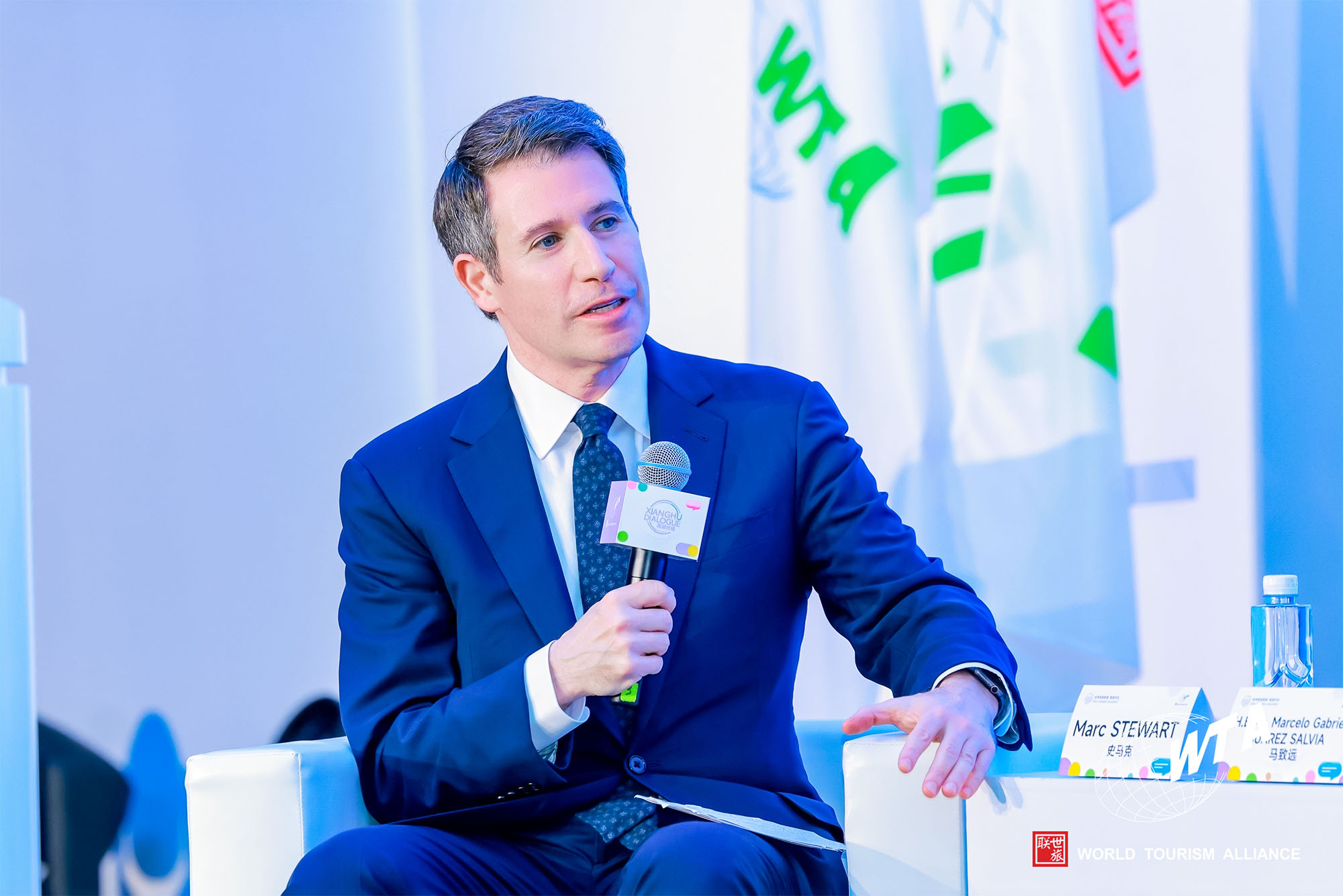
Moderator: Today we will focus on the topic of “Interconnectivity and Win-Win Cooperation in the Global Tourism Industry”. What does interconnectivity mean for tourism?
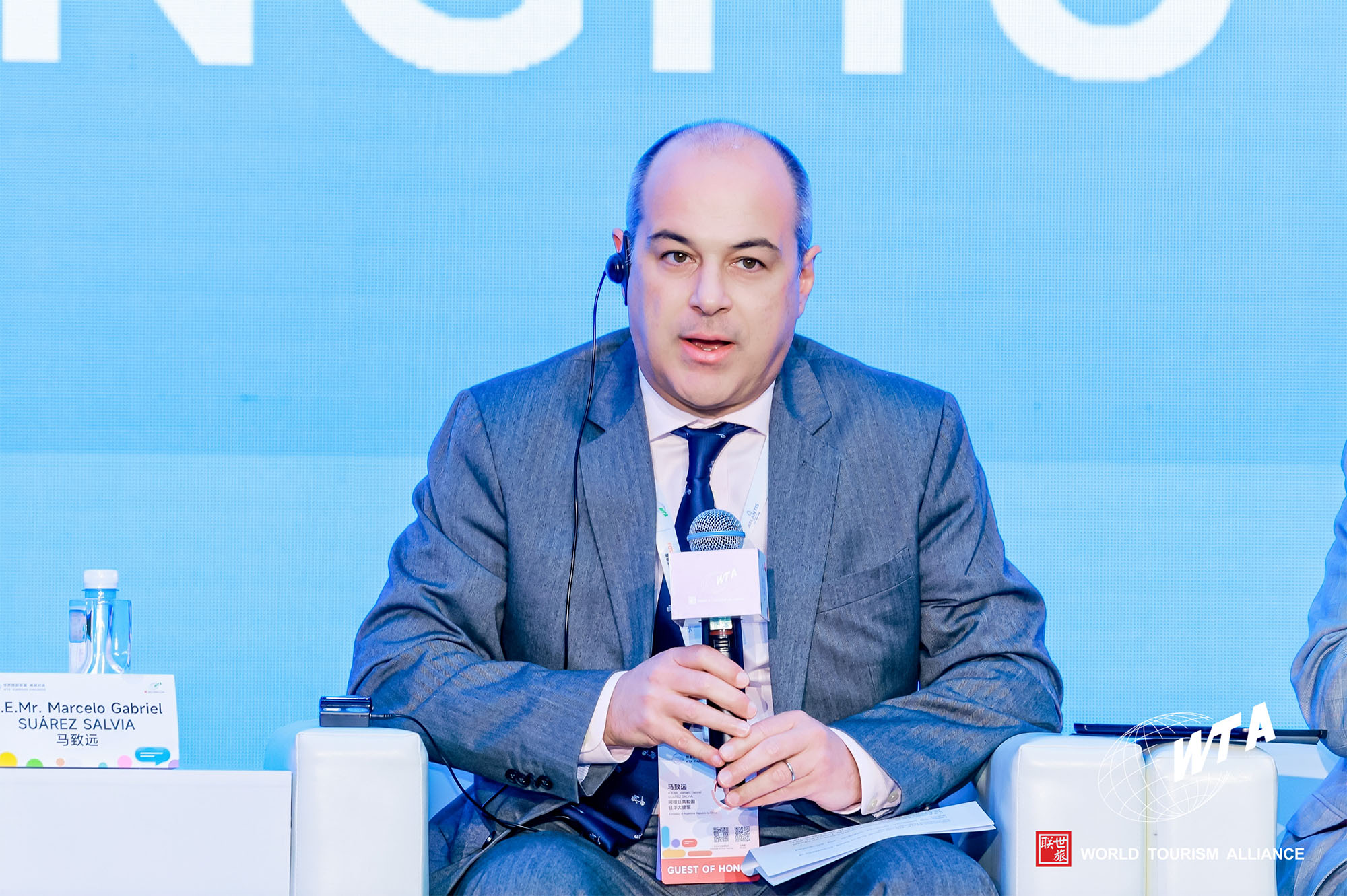
H.E. Mr. Marcelo Gabriel SUÁREZ SALVIA: I firmly believe that interconnectivity lies at the heart of tourism; it’s essential for providing tourists with a quality experience. From a developing country’s perspective, interconnectivity involves not only physical infrastructure but also technological advancement. We must strive to keep up with technological progress and seek partnerships with major countries like China. Argentina, with its stunning natural landscapes and rich tourism resources, benefits from this natural wealth by creating jobs and market opportunities. Our attractions like Argentine beef, wine, and tango culture offer diverse experiences for visitors. Since the new administration took office, we have prioritized economic openness, especially through our open skies policy in aviation, which allows all airlines equal access to the market. This policy presents a significant opportunity for the growth of both the aviation and tourism sectors.
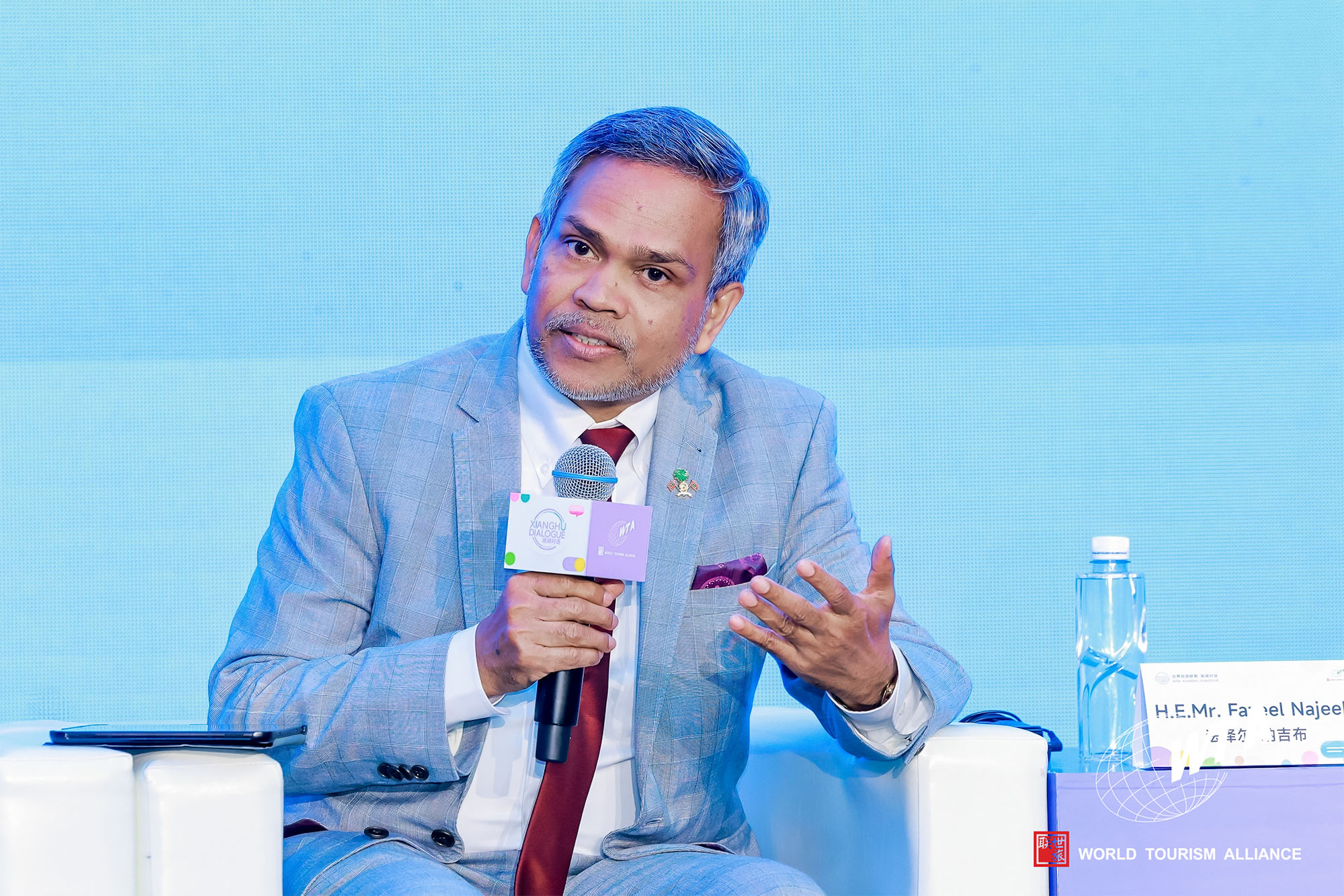
H.E. Mr. Fazeel Najeeb: As an archipelagic nation, the Maldives aims to promote tourism and provide an exceptional experience for global travelers. Over the next five years, we intend to highlight our unique tourism products, hoping international travelers will form deeper connections with local communities and gain insight into our way of life. Our approach goes beyond resort stays by integrating tourism with local communities. We specialize in offering unique, private experiences. With 20 airport islands, the Maldives has an efficient system to transport tourists to various islands, supported by our extensive marine tourism network and premium service facilities. Our tourism industry is flourishing, with a substantial profit potential. However, there is still a lack of Chinese investment in our market, and we eagerly welcome Chinese investors to explore opportunities in the Maldives.
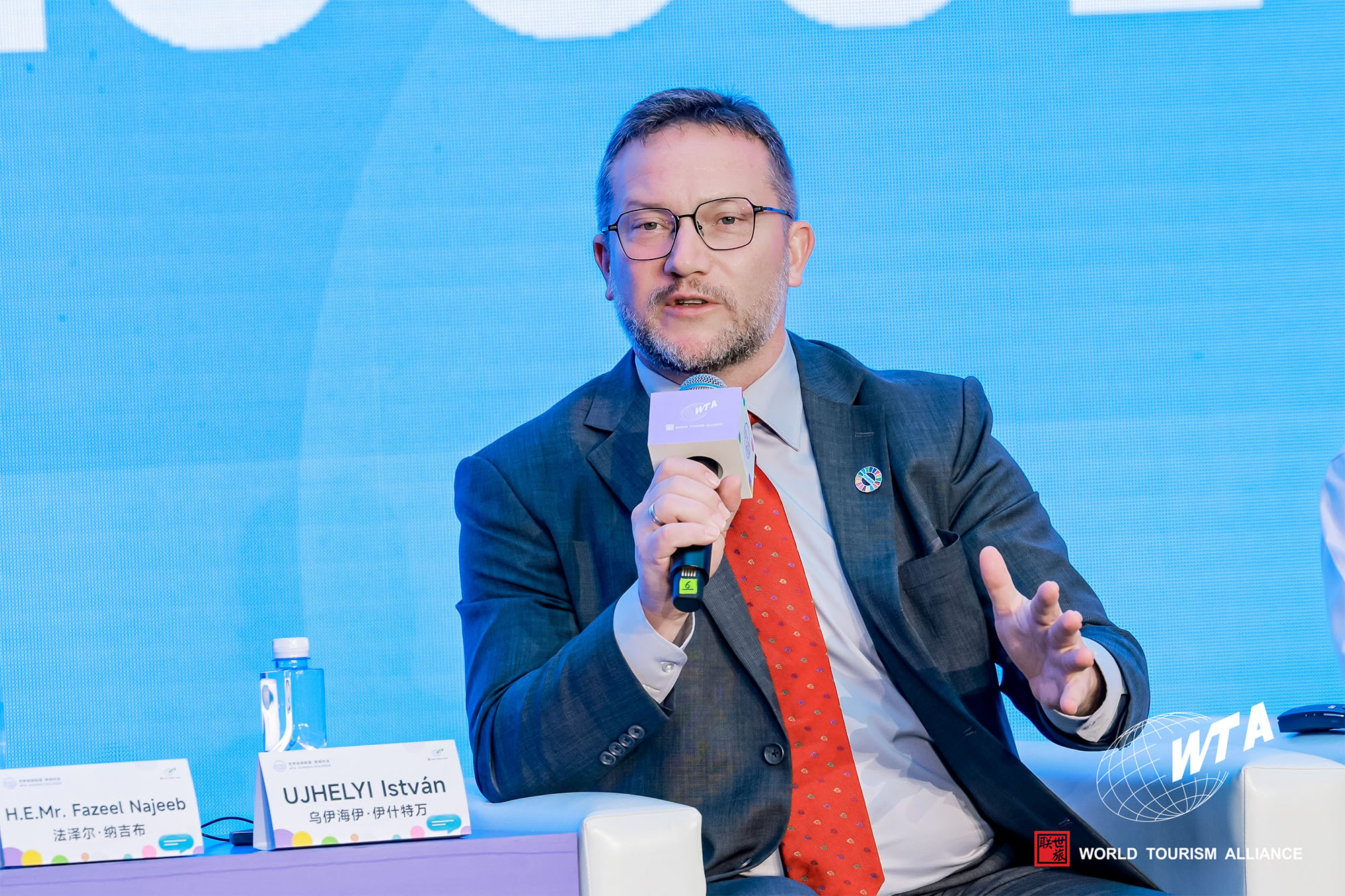
Dr. UJHELYI István: I’m from Hungary, a country with relatively a small land area. As a UN Tourism Ambassador and NGO chairman, I’ve had the opportunity to visit numerous regions. Over the past two decades, interconnectivity has reached unprecedented levels worldwide. Moving forward, three strategic pillars are essential for sustainable growth in tourism. First, we need to work together. Tourism has become one of the world’s most important industries, and we urgently need strong leadership to identify interconnectivity pathways between the Americas, Asia, and Africa. Second, we need better planning. Many resource-rich tourist destinations lack the necessary infrastructure and investment. As industry professionals, we must create development plans. Third, we need to protect our planet. From an industry standpoint, achieving green growth is challenging, and we must advance sustainable tourism.
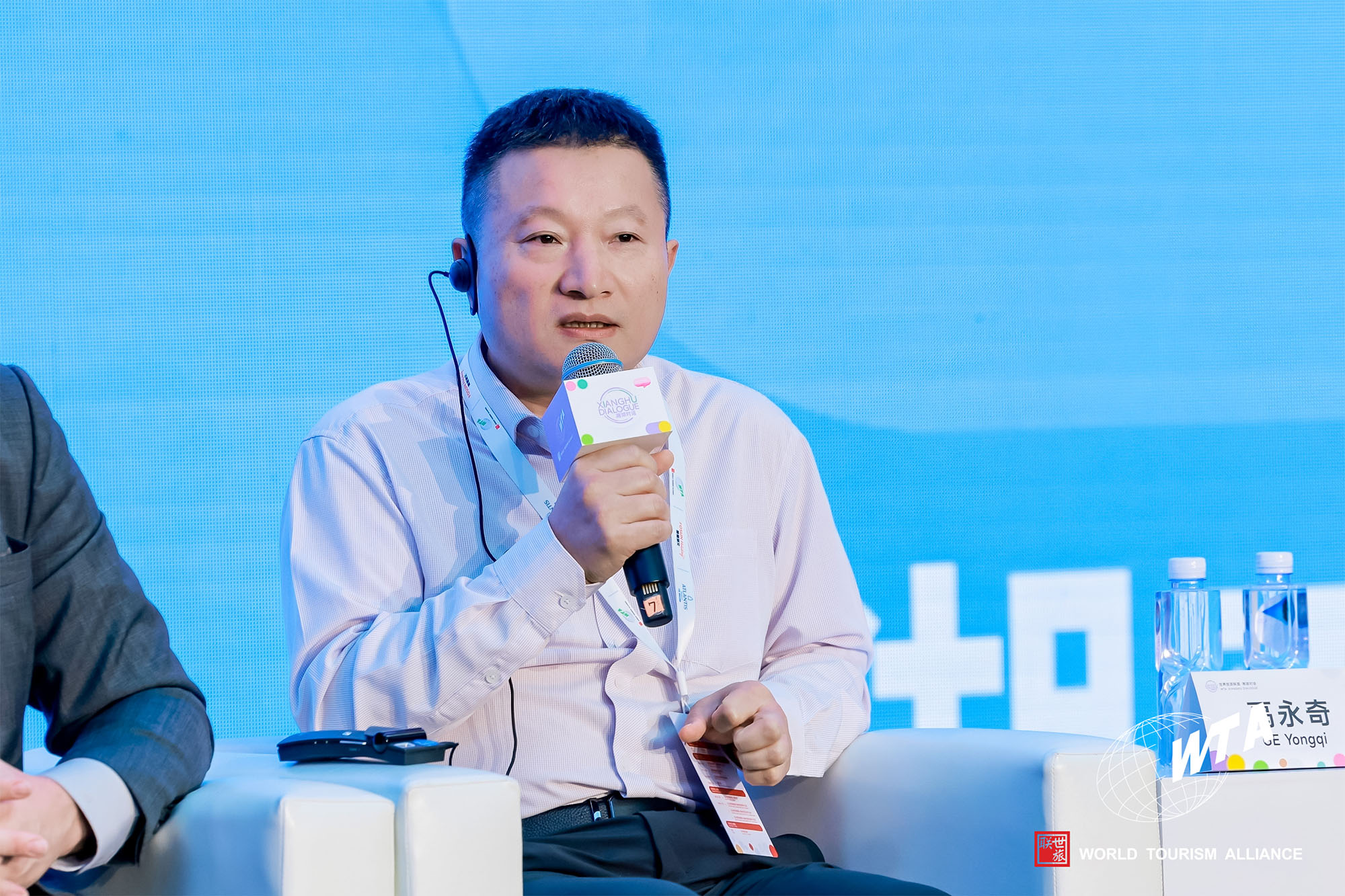
Mr. GE Yongqi: Let’s first discuss geographical interconnectivity. Hainan, separated from the mainland by sea, relies heavily on transportation options like flights and cruises for interconnectivity. The three-year pandemic hit Hainan’s tourism sector hard, but recovery is underway. In 2023, Hainan welcomed around 90 million tourists, with a target of 100 million this year. As of now, international flights have returned to 2019 levels. In the third quarter, Hainan received 750,000 international visitors and expects over a million by year’s end. Secondly, interconnectivity within the tourism industry is expanding. The boundaries of tourism are widening, with tourists and locals increasingly mixed up in spaces like markets, supermarkets, and parking service areas, creating broader development opportunities. Competition has intensified, with players from non-tourism sectors joining in. For us, this means faster product innovation is necessary to stay competitive.
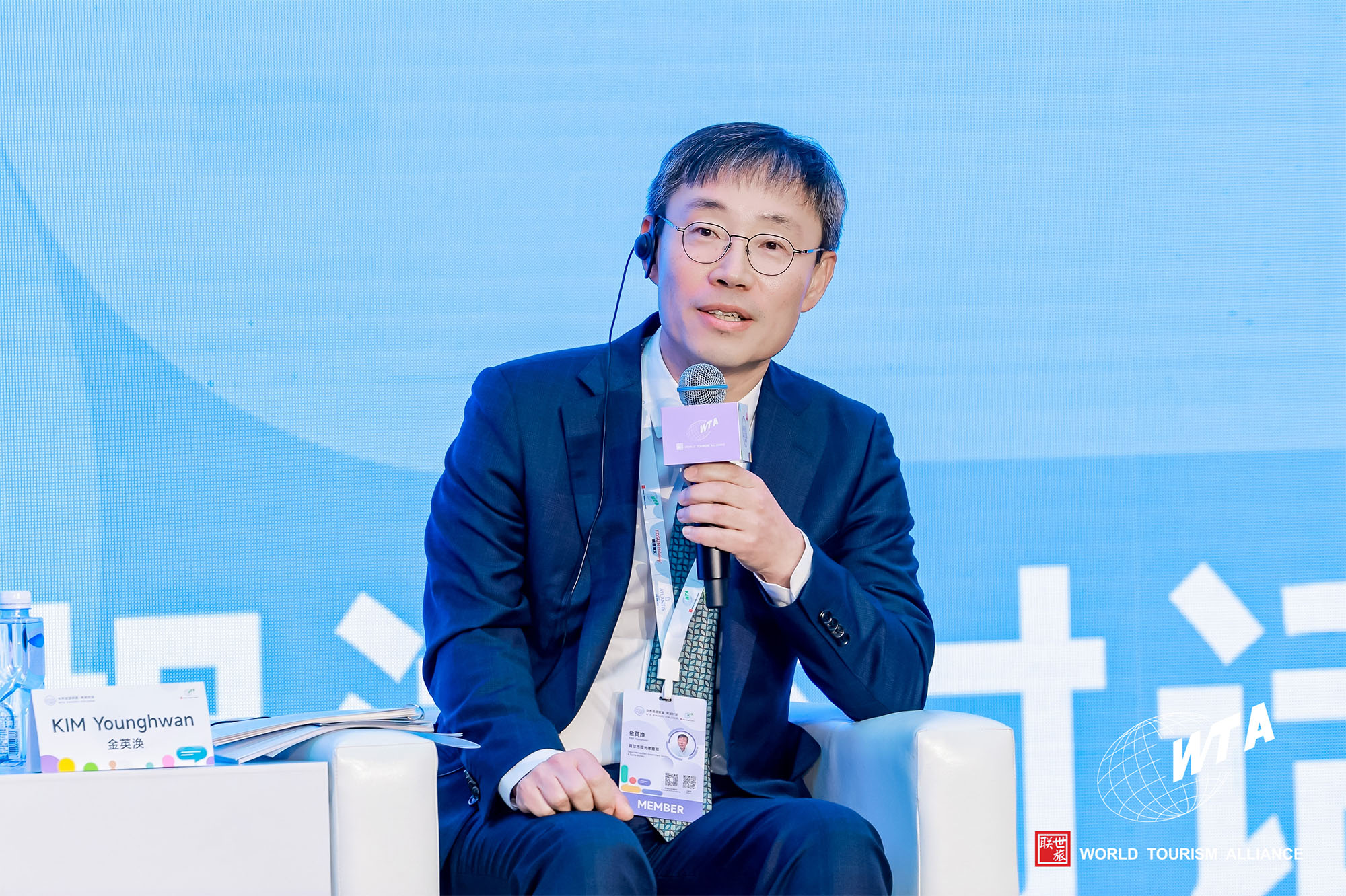
Mr. KIM Younghwan: Interconnectivity cannot be overlooked. Last evening, I departed from Seoul and arrived in Hainan around 9 p.m. That convenience is precisely what interconnectivity brings. With efficient travel options between Seoul and Hainan, moving between the two regions is incredibly easy. The Korean government has designated 2023-2024 as “Korea Tourism Years”, with a goal of attracting 30 million foreign visitors by 2027. We’re launching tourism products like group tours, small-group trips, customized tours, and immersive experiences to help visitors understand Korean customs and culture. Many young international travelers are interested in connecting with locals, exploring Korea’s street dance culture, and dining at the same restaurants frequented by residents. For visitors from outside Seoul, tourism plays a crucial role in building a connected environment.
Moderator: Looking ahead, the tourism industry’s prospects are promising but not without challenges. How might current geopolitical risks and regional conflicts impact tourism? And how will emerging technologies shape the industry?
Dr. UJHELYI István: Artificial intelligence is truly transformative, especially in tourism education. The current educational systems do not adequately prepare students with the skills and knowledge needed to meet the evolving expectations of today’s tourists. Data will become the backbone of all future processes, yet we’re already seeing conflicts and disagreements over data management. New technologies require new rules. For example, the EU’s recent regulations on AI make it significantly different for American tech companies operating within Europe compared to their domestic or other foreign operations. This calls for a closer look at policies that might not always favor foreign investors.
H.E. Mr. Fazeel Najeeb: Environmental impacts are a top priority for the future of Maldivian tourism. Given our low elevation, we face direct challenges from climate change. That’s why we’ve introduced the "Safe Islands Program", a strategic plan to build breakwaters and artificial islands. For potential investors in the Maldives tourism sector, environmental responsibility is a must. Another challenge is reducing fossil fuel dependence. We’ve set up solar-powered systems on our resort islands, aiming to make sustainability a core pillar of Maldivian tourism.
Mr. GE Yongqi: Traditional tourism had been significantly transformed by internet technology. With rapid advancements in AI, big data, autonomous vehicles, and other technologies, tourism professionals are experiencing a fundamental shift, especially in translation and guiding services. Global climate change is also a growing concern, especially for low-lying islands facing sea level rise. For Hainan, our natural environment is our greatest asset, but balancing rapid development with green growth is a challenge. As an investment company, we carefully select projects aligned with Hainan’s green growth vision.
Mr. KIM Younghwan: Transportation plays an essential role in tourism. Like London and Paris, Seoul strives to provide tourists with excellent transit infrastructure. The Korean government has set goals to promote sustainable transportation, offering one-day, two-day, and seven-day Seoul transit options for about $3 to $10. These options provide affordable access to buses and subways, helping both domestic and international visitors explore Seoul with ease. Our public transportation is clean and efficient, giving travelers an easy way to experience our lifestyle without incurring high costs.
Moderator: What kinds of travel experiences do people seek for the future, and how will the travel environment evolve?
H.E. Mr. Marcelo Gabriel SUÁREZ SALVIA: In Latin America, Argentina is renowned for its peaceful and safe environment, which gives us a distinct advantage. People often consider Argentina as a top travel destination for its welcoming atmosphere. We welcome visitors from around the world and encourage them to invite friends and family. Tourism is crucial for every nation, catering to diverse needs across different groups. We believe that every country has the potential to develop and implement sustainable policies for long-term growth.
H.E. Mr. Fazeel Najeeb: Globally, we need to acknowledge that sustainable tourism is essential for economic and social prosperity. Tourism allows people to cross borders, discover different cultures, and appreciate the beauty of other nations. Establishing a global visa-free mechanism would foster international cooperation and make it easier for tourists to explore new destinations. For example, the reciprocal visa-free agreement between China and the Maldives has been highly effective.
Dr. UJHELYI István: As cross-border travel becomes more frequent, tourism increasingly fosters global connections. However, safety cannot be overlooked. Whether in times of conflict or peace, geopolitical tensions inevitably impact tourism. War is the single greatest threat to our industry. We need to build a global network to handle potential conflicts swiftly. At the same time, it’s vital to educate the next generation to respect local cultures and communicate with local residents effectively, empowering them to become responsible ambassadors of tourism.